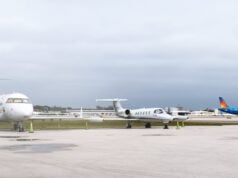
Flying is necessarily a performance-based endeavor. Pilots must pass tests and regular recurrent training to remain legal to fly an aircraft no matter what level or type of flying they do. The results of these exams and training sessions are carefully documented, with the former on display for potential employers or government officials to access at a moment’s notice.
For all these reasons, not to mention pilots’ natural tendency to want to fly freely at higher and higher levels throughout their careers, adversity can be difficult to bear. Failing checkrides can be devastating, and few things are as stressful as struggling to grasp a maneuver or concept with a test on the horizon. Some have missed out on job opportunities, been investigated, or faced medical problems that have complicated the potential of their flying careers.
As difficult as adversity is to bear, it plays a critical role in helping pilots recognize their shortcomings, improve their skills, and grow both inside and outside the cockpit. In fact, it is often the very act of facing and overcoming adversity that helps pilots recognize, or at least truly face, areas where they need to grow. In turn, this growth is often instrumental to laying the foundation for a stronger career.
Many pilots are familiar with what is perhaps the most consistently heard question in new-hire interviews, “Have you ever failed a checkride or had an incident?” This question is often quite feared, prompting you to question whether you have had too many failures or is an incident too much of a negative. This question, however, has a hidden purpose. Just as importantly, if not more, than the direct answer is the answer to the follow-up question, “How did you deal with it?” Being able to learn from these failures and incidents and come away from them a better pilot is the best thing that a pilot can do for themselves to move their career forward. Self-reflecting and challenging yourself to become a better pilot is much more meaningful than simply the number of checkride failures in the FAA system.
One of the most important aspects of adversity is that it is external. It is often difficult for people, pilots included, to do a completely honest self-reflection and decide what they must improve to move forward. Rather, when instructors, examiners, and bosses provide feedback, pilots can identify growth areas that they did not fully recognize or appreciate alone. Though uncomfortable, constructive criticism and fair challenges can be the impetus for taking meaningful action towards growth. It may not be possible to grow quite as much just on your own.
Perhaps when studying adversity, we can consider equally the benefits of collaboration and being outside of your comfort zone for growth. Working with others and being in new situations that challenge us can provide the proper scenario we need to identify brand new topics on which we can focus our growth. For example, if you have spent your career flying airplanes and need another way to grow your abilities, you can transfer to a new type of airplane or switch to gliders. New situations will offer new challenges that will allow you to grow in a way that might not be possible by simply staying in airplanes. The same can be true of flying in new parts of the country, flying in another season, or earning a new rating to add to your pilot certificate.
Ultimately, it does not matter where adversity comes from, per se, simply the fact that a pilot encounters it means they will gain proficiency and competency for dealing with it. The question is almost never how much adversity you have faced in your career, but rather how it shaped you to be a stronger, more capable pilot. Indeed, there are always lessons to take from each experience and each stage of a pilot’s career.






















































































































